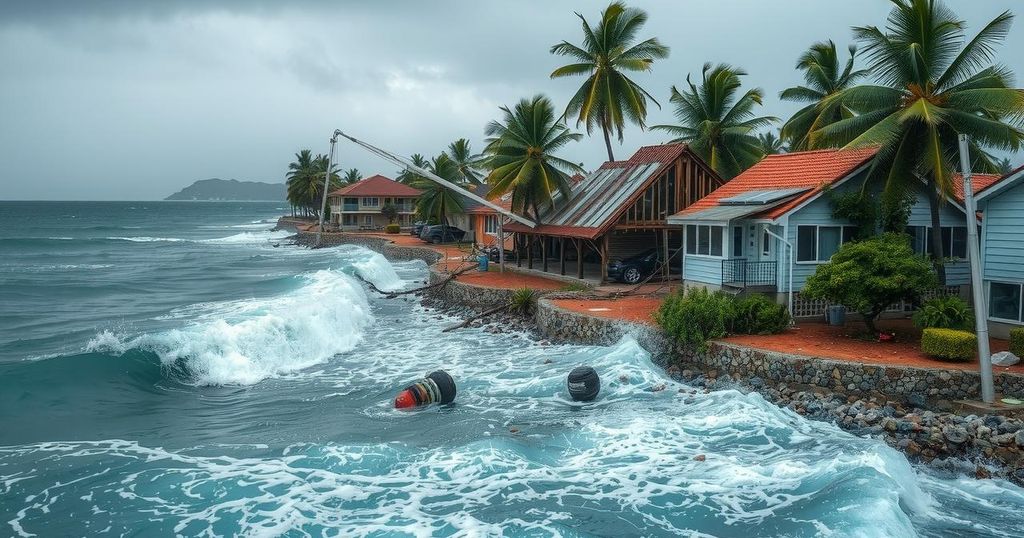Cyclone Chido: A Catastrophic Storm in Mayotte and Its Dire Consequences

Cyclone Chido has devastated Mayotte, marking a historic storm event with significant casualties. With winds exceeding 220 km/h, officials anticipate a death toll potentially reaching hundreds or thousands. Rescue operations are hindered by damaged infrastructure and a large undocumented migrant population. The cyclone’s impact extends beyond Mayotte, affecting neighboring countries in Africa, highlighting the increasing urgency of climate change mitigation and preparedness strategies.
Cyclone Chido has wrought unprecedented devastation on France’s overseas territory of Mayotte in the Indian Ocean, marking the most severe storm to strike the region in nearly a century. The cyclone, which reached its peak intensity with winds exceeding 220 km/h, has resulted in at least 19 confirmed fatalities; however, officials fear that the actual death toll may rise into the hundreds or potentially thousands due to the extensive damage inflicted on the densely populated and impoverished communities. Emergency responders are currently engaged in search and rescue operations, facing challenges posed by damaged infrastructure and a high number of undocumented residents in need of assistance.
The cyclone originated from a tropical depression and rapidly intensified over a period of days. After making landfall in Mayotte, Chido also impacted areas of southeastern Africa, bringing rains and destruction to countries such as Madagascar, Mozambique, and the Comoros Islands. Initial assessments have confirmed that critical infrastructure has sustained significant damage, including the healthcare system, as well as roads and electrical lines, severely limiting access to care and resources for the affected population.
In the wake of the cyclone, French officials, including Interior Minister Bruno Retailleau, have deployed medical and military personnel to the region, aiming to provide immediate aid and conduct search efforts amidst challenging conditions. Efforts are complicated by the region’s socio-political dynamics, particularly the large number of undocumented migrants who comprise a significant part of Mayotte’s population, and traditional funeral practices which delay the accounting of fatalities. Reports indicate that impoverished shantytown dwellers have suffered the worst impacts, as these structures are ill-equipped to withstand severe weather events.
Looking ahead, Cyclone Chido is expected to dissipate as it weakens over mainland Africa. Experts have voiced concerns regarding the increasing intensity and frequency of cyclones in the Indian Ocean, attributing this trend to climate change and rising sea temperatures. As the region grapples with the aftermath of this disaster, scientists are urging improved monitoring and preparedness measures to mitigate future risks and protect vulnerable populations from similar calamities.
Cyclone Chido illustrates the severe weather challenges faced by communities in the Indian Ocean, particularly in regions like Mayotte, which suffers from poverty and underinvestment. Over the years, climate change has accelerated the intensity of cyclones, prompting an urgent need for effective disaster management practices. Understanding the origin and dynamics of tropical systems such as Chido is fundamental for devising strategies to combat the adverse effects of climate-related disasters, which are becoming increasingly common in vulnerable areas.
In conclusion, Cyclone Chido represents a grave humanitarian crisis for Mayotte and surrounding regions, with the potential toll on human life still uncertain. The destruction caused by the cyclone underscores the urgent need for enhanced disaster preparedness and robust infrastructure. As climate change continues to exacerbate the frequency and severity of such extreme weather events, government and international efforts must focus on improving early detection systems and equipping vulnerable areas to manage future storms more effectively.
Original Source: www.aljazeera.com







